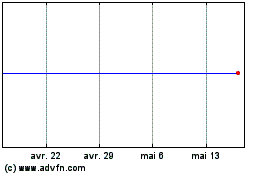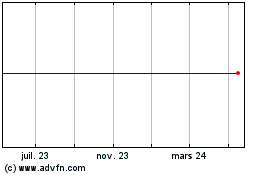By Rob Copeland
Google's once-untouchable online-advertising operation took a
body blow, hurt by mounting competition and struggles within its
increasingly high-profile YouTube unit.
Google parent Alphabet Inc. in the first quarter posted its
slowest revenue growth since 2015. The poor results highlight the
risks for one of Silicon Valley's biggest names in effectively
leaning on one massive, if lucrative, business.
For all its myriad arms and efforts to diversify, Google remains
essentially an old-fashioned billboard operation with a high-tech
gloss -- and it now faces more rivals.
The company's results are an outlier amid what has otherwise
been a steady earnings season in the technology sector. Peers like
Facebook Inc. and Twitter Inc. previously posted strong earnings,
while Amazon.com Inc. last week reported record profit that will
allow it to pour fresh cash into improving its Prime membership
program.
Alphabet shares fell 7% Monday after hours, with the drop
picking up during the earnings call as executives declined to
answer direct questions about the flagging growth. Nearly an hour
in, one analyst, Ross Sandler of Barclays, audibly sighed. "I guess
I'll beat a dead horse on the deceleration," he said.
"We are very excited about the opportunities across the board,"
responded Chief Financial Officer Ruth Porat.
If Alphabet shares drop in regular trading on Tuesday to match
the after-hours decline, that would wipe more than $60 billion from
the company's market capitalization and mark the worst single-day
session in nearly seven years. Before the earnings report, shares
were up 24% this year.
Alphabet reported first-quarter revenue of $36.3 billion,
roughly $1 billion short of forecasts. Per-share earnings of $9.50
also disappointed, and were a substantial fall from a year earlier,
when results were supercharged by the conglomerate marking up its
stakes in private technology companies.
Growth slowed across the board. Revenues were up 17%
year-over-year, compared with 26% in last year's first quarter. The
company's margin, a constant concern for analysts and investors,
fell to 18%, compared with 25% last year.
The crimped margin can in part be blamed on last month's $1.7
billion fine from European regulators for abusing the dominance of
its search engine and limiting competition. Excluding the fine, the
company's margin came in at 23% and its per-share earnings were
$11.90.
The longer-term issue, however, is competition. Rivals like
Amazon, once content to play in their own corners of the Silicon
Valley sandbox, are making big plays at online advertising. In a
potentially existential threat to Mountain View, Calif.-based
Google, more online shoppers now begin their searches directly on
Amazon than on search engines.
Ms. Porat and Chief Executive Officer Sundar Pichai repeatedly
said on the call that the company was experimenting with changes to
the advertising product that hurt short-term growth, but neither
went into specifics, nor said whether they applied to desktop or
mobile platforms.
The shift to mobile is a long-term drag for Google, which
annually pays billions to rivals like Apple Inc. to place
advertisements onto rival phones. Google was able to keep a lid on
such "traffic acquisition costs" in the quarter, coming in lighter
than analysts expected. That figure marked one of the few bright
spots in the company's earnings.
YouTube, perhaps the company's most closely watched arm, remains
a financial black box. Hailed as an inspired acquisition 13 years
ago, Google still hasn't broken out the unit's results in an
earnings results. That has left investors to piece for clues, as
expensive forays into original programming and cable-television
replacement services have thus far failed to pay off.
Analysts estimate YouTube is responsible for around 15% of
Google's sales. On the call, Ms. Porat said that growth in clicks
on the platform fell in the first quarter.
YouTube has recently attracted criticism that it doesn't
effectively control the sometimes dangerous content posted and
promoted on the video-streaming service. The rising costs likely
reflect additional efforts by the company to police the platform,
not unlike the heavy investment Facebook has made in response to
critiques about its products.
Mr. Pichai said that reducing harmful content was "the most
important area of focus" for YouTube.
In a milestone long on the horizon, Google this quarter
stretched to a record in employment, adding another 18,000 jobs and
crossing what is at least a psychologically significant barrier of
100,000 full-time employees. That surely understates total head
count, as Google doesn't detail its burgeoning contract
workforce.
The new faces are a sign of success, but introduce risks. Some
current and former employees lament what they call the slow
degradation of the company's entrepreneurial culture, and the cost
of fighting for Silicon Valley talent places increasing pressure on
Google's bottom line.
Write to Rob Copeland at rob.copeland@wsj.com
(END) Dow Jones Newswires
April 29, 2019 22:16 ET (02:16 GMT)
Copyright (c) 2019 Dow Jones & Company, Inc.
Twitter (NYSE:TWTR)
Graphique Historique de l'Action
De Juin 2024 à Juil 2024

Twitter (NYSE:TWTR)
Graphique Historique de l'Action
De Juil 2023 à Juil 2024
